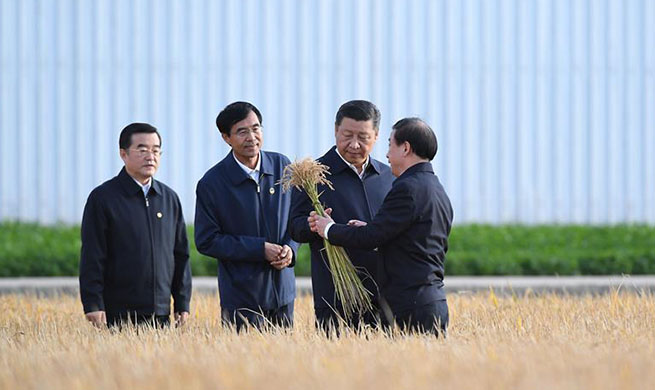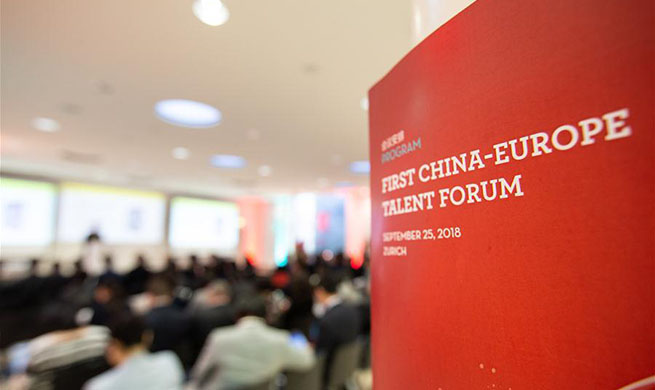LIVERPOOL, Britain, Sept. 25 (Xinhua) -- A game of chance is being played out at the main British opposition Labor Party Conference in Liverpool Tuesday that could determine whether their leader Jeremy Corbyn will be getting the keys to 10 Downing Street sooner than expected.
Tuesday's agenda will be dominated by Brexit, and whether the party should opt for a second referendum, a so-called people's vote on a final deal with Brussels, or Corbyn's preferred option of a snap general election.
Labor's Brexit spokesman Keir Starmer said in an interview on the sideline of the conference that the co-called Chequers blueprint which charts British Prime Minister Theresa May's plans for a deal with Brussels will almost certainly fail conditions laid down by Labor.
Accusing May of failing in her mission, Starmer said: "I think it's going to be a very bad deal, I don't think it is going to meet our tests. We cannot vote for something that's not in the national interest."
A so-called composite motion at the Labor conference gives the party a range of options. Observers have said it will have impact on the political landscape of the country which is scheduled to leave the European Union next March.
The latest motion says: "If we cannot get a general election, Labor must support all options remaining on the table, including campaigning for a public vote."
It took around six hours to compile those 22 words to satisfy the range of attitudes within the party to the fate of Brexit.
CURTAIN RAISER
Remain-supporting Starmer's speech Tuesday is a curtain raiser ahead of Corbyn's keynote speech 24 hours later. That end of conference jamboree and traditional sing-along will demonstrate whether the party rank and file are battle ready for a possible election.
The success of Labor's Brexit strategy will depend on what happens to the plan which Prime Minister Theresa May hatched in July at a day-long meeting with her senior ministers at Chequers, her country retreat.
That plan led to a string of resignations, including foreign secretary Boris Johnson and Brexit secretary David Davis. Her blueprint, which opponents say will keep Britain allied to some aspects of EU rules and regulations, has faced continued criticism from some of her own ministers and members of her Conservative party.
Worse still for May, it has been given the thumbs-down by EU Council President Donald Tusk and the leaders of the 27 remaining EU member states.
NO-DEAL BREXIT
May emerged from a lengthy meeting of her cabinet Monday, with what appears to be unity among her senior ministers about forging ahead with her Chequers Plan. Her message to her ministers was to hold their nerve.
May and her advisers at Number 10 will be eagerly following the events in Liverpool knowing that a week later she will face Conservatives at her own annual conference in Birmingham.
It will then become a numbers game to determine whether May has enough votes in the House of Commons to pursue her own Chequers plan, with no-deal as a possible outcome.
Heading a minority government, shored up by the 10 Democratic Unionist MPs from Northern Ireland, May's strongest card is that if her own members vote it down, the alternative is a possible landslide win for Corbyn and Labor in a general election.
That vote would mean many Conservative MPs knowing their Westminster jobs would disappear.
It makes the two big conferences the most important so far this century in the way Britain's future in the world will be determined in the third decade and beyond.
Meanwhile in the wake of the keynote speech by shadow chancellor John McDonnell about re-nationalization of key industries, and workers given a share of company profits, headline writers Tuesday gave their take on the future.
"Corbyn's UK would face economic deep freeze," said the Daily Telegraph headline, while the Express headlined a warning by the Confederation of British Industry of the cost of Labor's policies.













